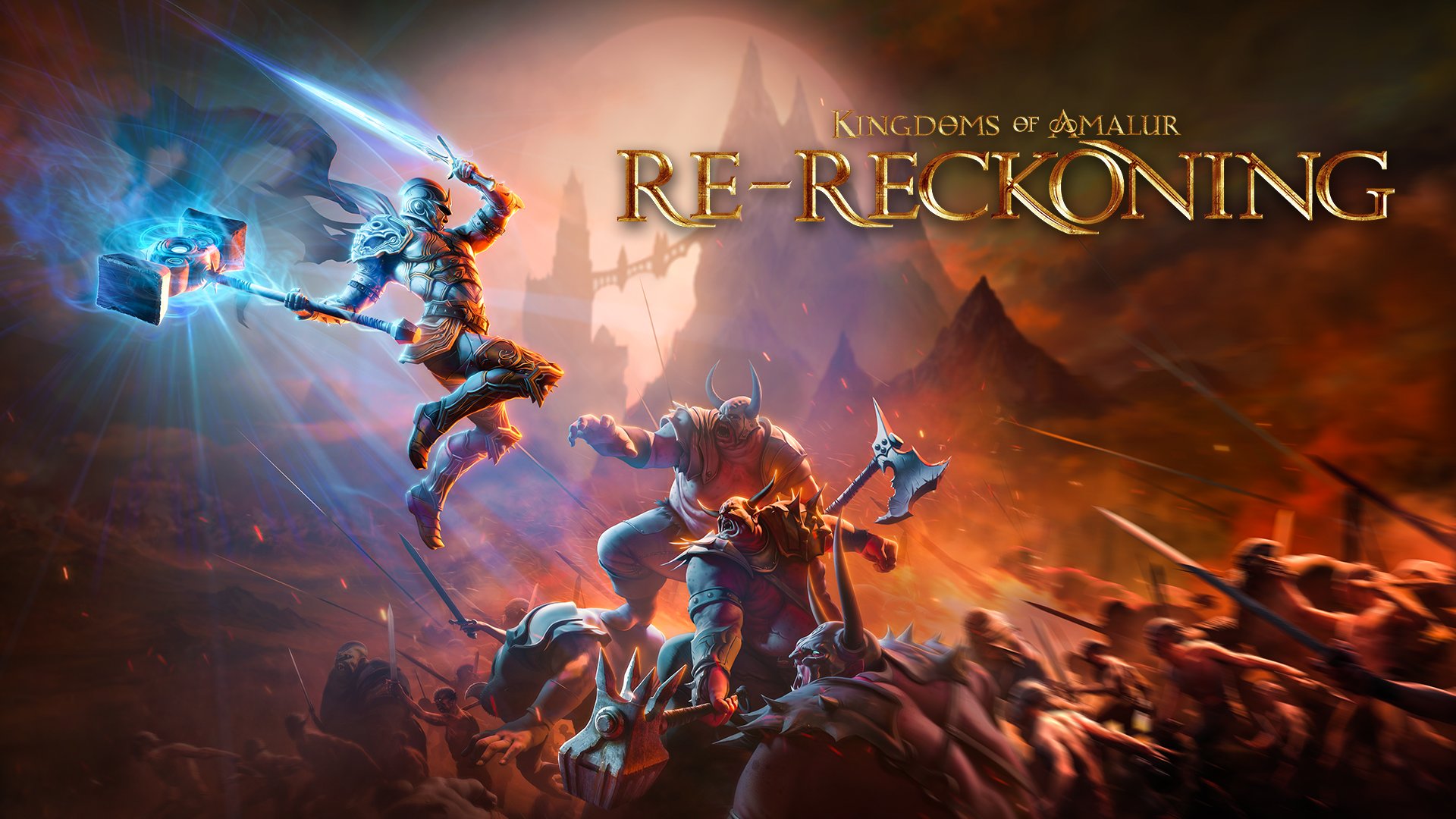[Review] Nintendo Switch – Kingdom of Amalur: Re-Reckoning
Developer: Kaiko
Publisher: THQ Nordic
Category: Adventure, Action, Role-Playing
Release Date: March 16, 2021
Composer: Grant Kirkhope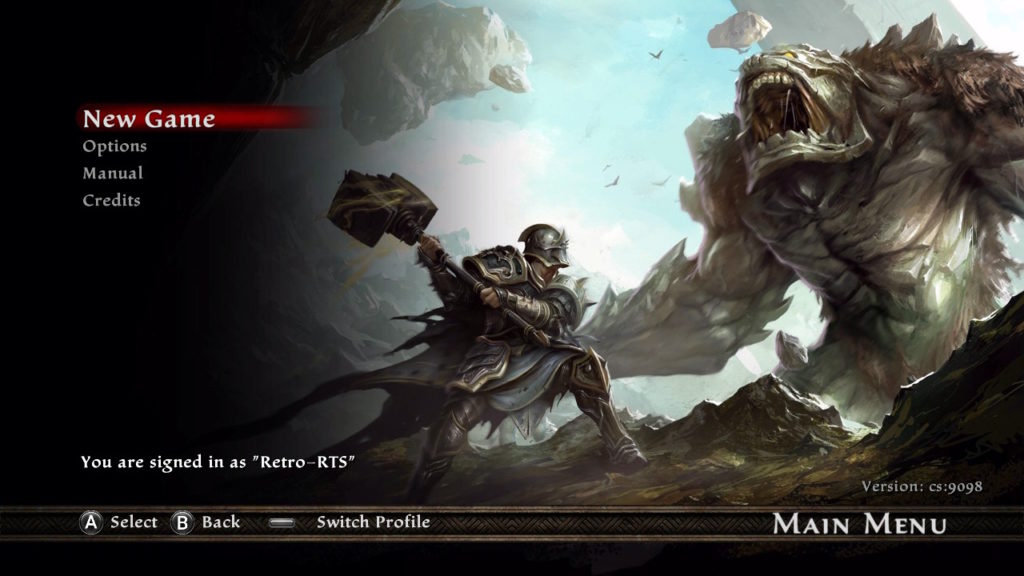
There is a very small list of role-playing games I would love to see remastered. Games like Legend of Dragoon and Chrono Trigger come to mind almost immediately in any conversation concerning those deserving a remaster. When I heard one of my favorite PS3 games was being released on the Switch, I was nothing short of elated. And even though it isn’t a complete remaster, Kingdom of Amalur: Re-Reckoning is a big leap in the right direction for giving new life to old titles.
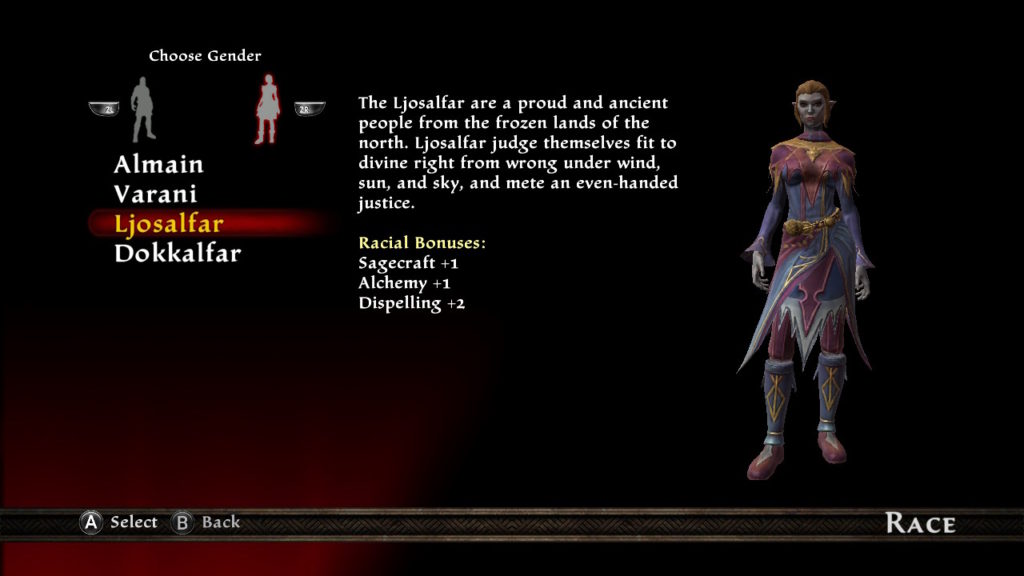
Re-Redemption
Starting a new game is essentially the same as many RPGs. You select your character’s race, and whether you want to play as a male or female. Each race comes with their own racial bonuses, and you are able to choose a god or a sign, if you will, that will add another small buff to the character you create. It is reminiscent to the birthsign mechanic in the Elder Scrolls games. There are some customizations that add a little variety, but they are still fairly basic since they weren’t completely overhauled for the release. After creating your character you are reborn, only to learn you are now a “fateless one” with potential for great power.
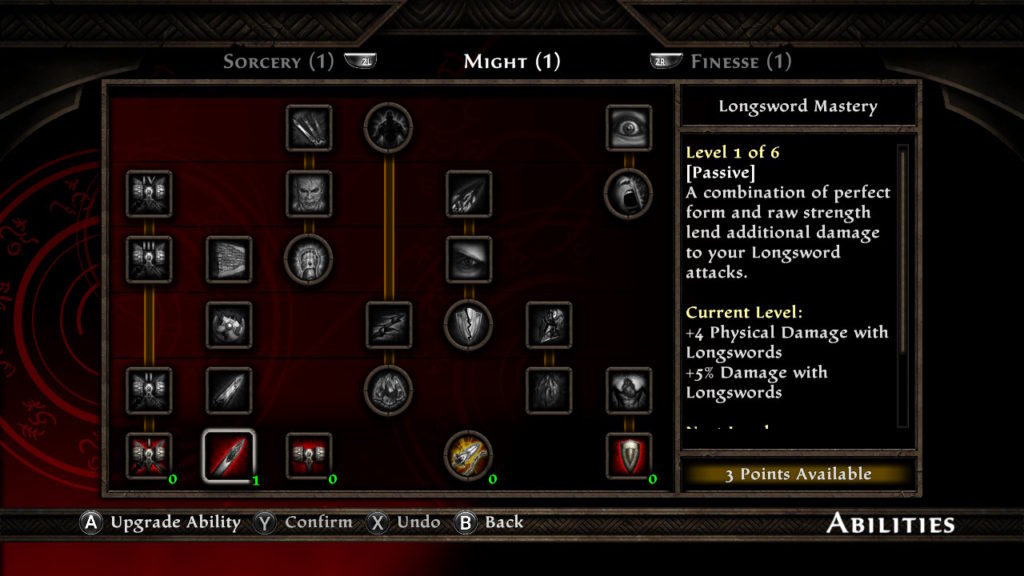
Inflated Egos
One of the best products of this title is the ability upgrades. It centers around three main class types; Sorcery, Finese, and Might. A player can waste a lot of time playing around with how to spend skill points, and they can be combined to fit playstyles. As you gain experience in the game, and spend points, you unlock Destinies which boost your abilities. Eventually, and with enough experience gained, you can master all three Destinies. Leading to literally becoming a Jack of all Trades. One of the best features of this tree is the ability to reset it and try a new Destiny at any time. You are able to cycle through Mage, Rogue or Knight as you see fit. A small, yet interesting, incentive are the Twists of Fate cards. While similar to the Destinies, these are unlocked from questing and also provide small bonuses to your character.
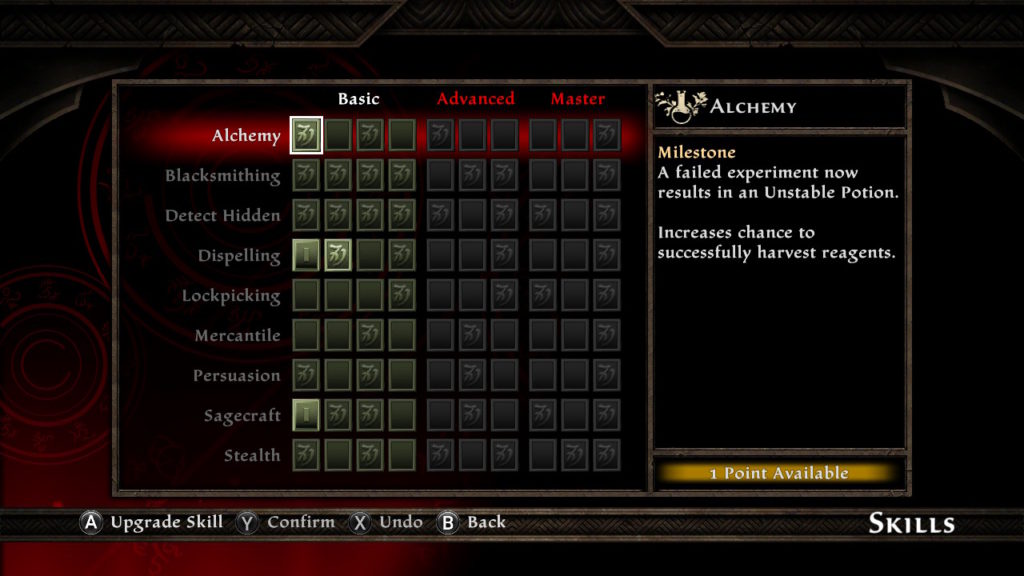
Tree of Probabilities
In addition to an already massive set of ablities, is the skill tree. This tree furthers your choice of skills that aid you on the journey through Amalur. From Blacksmithing, where you are able to tear apart weapons and craft something completely new, to Persuasion which increases your chances to convince NPCs to respond in a manner that best benefits you. Each of these will prove critical depending on the route you take, especially late in the game. For example, as you advance through the story you will find certain locks imbued with a curse. You are only provided a small amount of time to dispell the curse. An icon will move in a circle and you must time your selection perfectly as it passes over curse icons. Spending skill points in Dispelling decreases the difficulty, among other exploits.
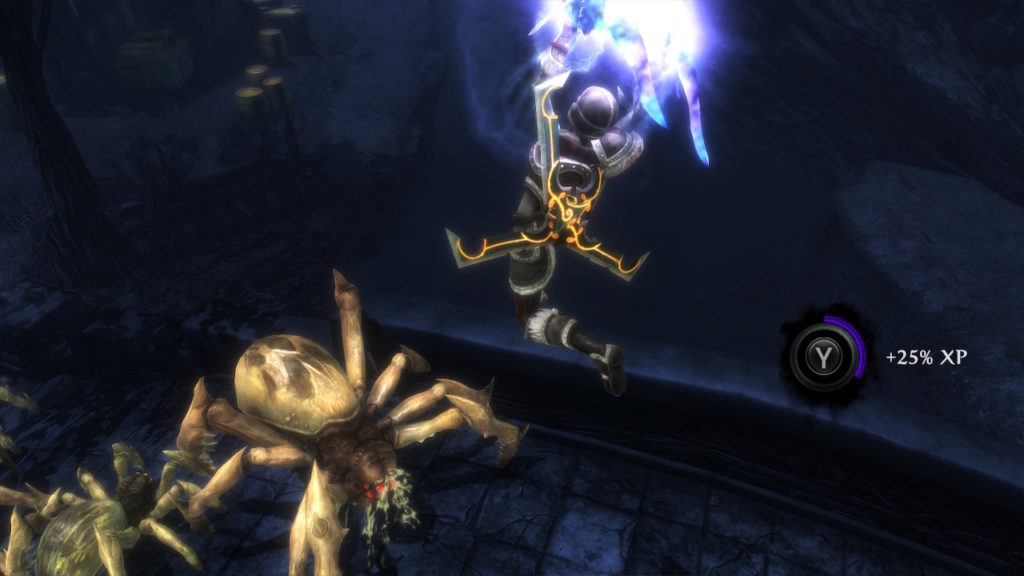
Hostile Takeover
The combat system is fairly undemanding, and like many role-playing games it becomes fairly repetitive. However, it is an absolute blast to use. There is a fairly decent variety of weapons; from staffs, and daggers, to bows and faeblades. One qaulity that I enjoyed was the ability to swap from a primary weapon to the secondary weapon almost seemlessly. Shields are in a separate slot and are usable for all classes. When used with the weapon combinations that are learned, combat feels far more diverse. As you mercilously tear through enemies, you collect and store Fate energy. Once the energy bar is charged, you are able to unleash a special attack on multiple enemies, or place the focus on a boss. When the enemy life is nearly zero, you are able to charge a final attack that provides an boost to experience gained in battle. The final attack plays through a cutscene which is based on the weapons used and the Destiny you have chosen; providing some variety.
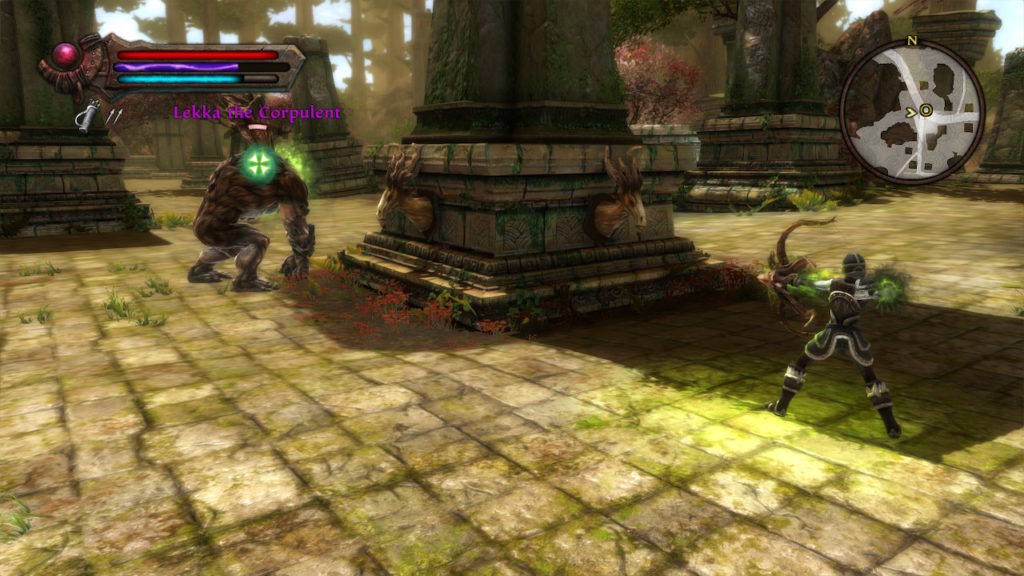
To Travel Abroad
The world of Amalur is massive. Connected to the universe created by R.A. Salvatore, with creature designs by Todd McFarlane, it goes without saying that the world is immersive. The user interface wasn’t touched, which just made cycling through the options slightly frustrating. Visuals didn’t get a massive upgrade, which was a missed opprotunity. These are the only complaints I had while playing. The music is amazing. The little extras in the game, like the Lorestones that provide more story as you discover them and the Shrines that provide a timed buff, just add to an already amazing experience. This was every bit and more the game I hoped for.
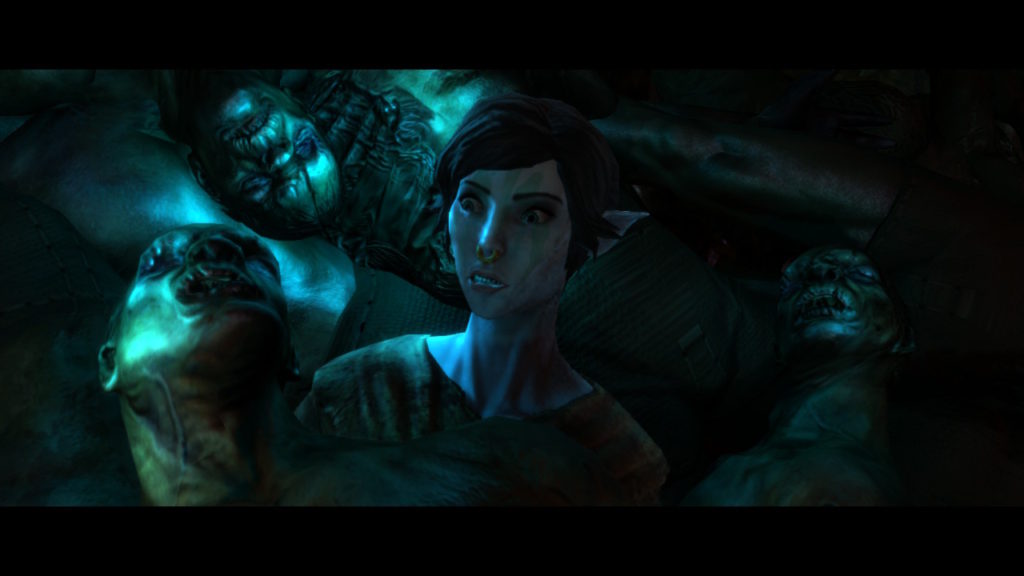
Long Live the Kingdom
While I will admit that the Nintendo Switch has become a port machine, it is something about the Switch I absolutely love. There are many titles I have experienced a second or third time just because I was able to play them portably. Kingdom of Amalur slid under the radar and a lot of people missed a fantastic title. This re-emergence brings Amalur to a whole new generation. Could there have been more done to make the visuals more crisp and the user interface more accessible, absolutely. This title was and is still a treasure. One that I am happy has found a new fate on a new console.
4/5





Buy Now: 39.99
Follow Kaiko Games

Follow THQ Nordic


*The Switch Effect was graciously provided this game code for review.

